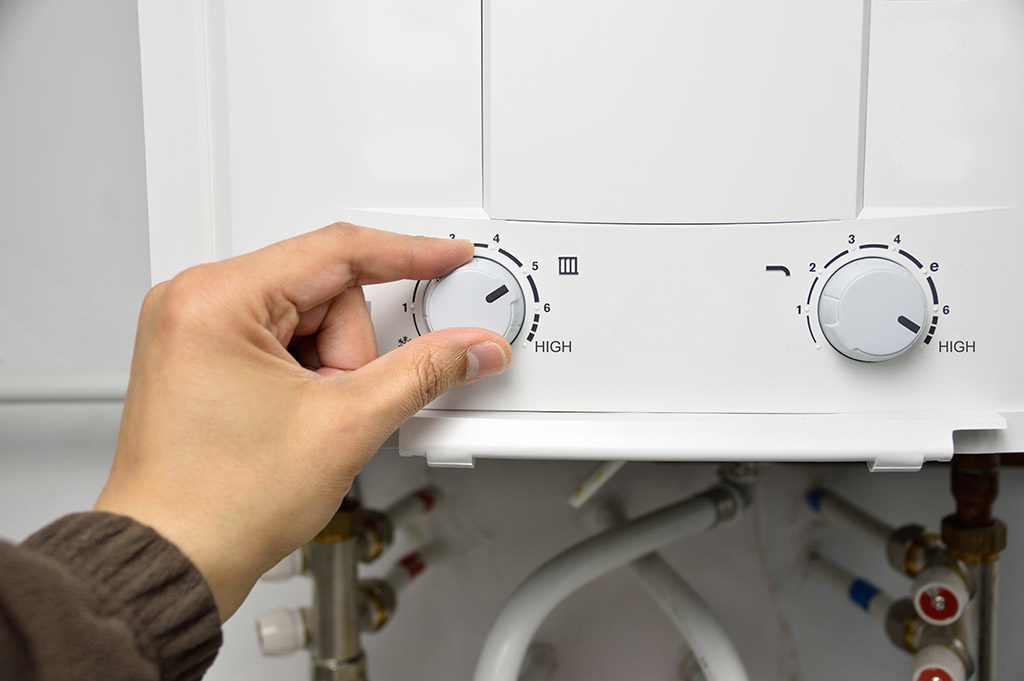Dealing with the Standard Water Heater Crisis Scenarios
Dealing with the Standard Water Heater Crisis Scenarios
Blog Article
Just about everyone maintains their own unique piece of advice involving Is Your Water Heater Leaking?.

A water heater is among the most vital standard appliances that can be found in a home. With water heaters, you don't need to undergo the anxiety of heating water manually every time there is a requirement to take a bath, do the laundry, or the recipes. Nevertheless, there is constantly a possibility that your hot water heater would certainly act up as with the majority of mechanical devices.
It is very important to note any kind of little breakdown and tackle it rapidly prior to things get out of hand. Most times, your hot water heater starts to malfunction when there is an accumulation of sediments as a result of continual use. As a precaution, routine flushing of your hot water heater is recommended to stop sediment build-up and protect against practical failing.
Common hot water heater emergencies and also how to handle them
Leaking water heater storage tank.
A leaking container could be a sign of rust. It could cause damage to the flooring, wall surface and also electric gadgets around it. You can even be at risk of having your house flooded. In this circumstance, you must shut off your water heater, enable it to cool down, as well as carefully search for the resource of the issue. At times, all you require to do is to tighten a couple of screws or pipe connections in cases of minor leakages. But if this doesn't work and the leakage continues, you might require to employ the services of a specialist for a suitable substitute.
Changing water temperature.
Your water heating system can begin producing water of various temperature levels typically ice cool or scalding warm. There might be a requirement to replace either the thermostat or the heating system of your water heating system.
Insufficient warm water
It might be that the water heating unit can't sustain the hot water demand for your home. You could update your water heater to one with a bigger capacity.
Blemished or smelly water
You require to understand if the problem is from the tank or the water resource when this happens. If there is no amusing scent when you run cold water, after that you are specific that it is your hot water heater that is defective. The stinky water can be brought on by rust or the build-up of microorganisms or debris in the water heater container. You can try flushing out your tank or changing the anode if the issue continues when you discover this. The feature of the anode is to clean microorganisms from your container. Considering that the anode pole replacement needs a thorough knowledge of your water heating unit, you will certainly require the help of a professional.
Conclusion
Some property owners disregard little caution and also minor faults in their water heater device. This just results in additional damages and a feasible complete failure of your device. You should manage your hot water heater faults as quickly as they come near avoid even more costs as well as unneeded emergency troubles.
With water heating systems, you don't need to go via the tension of home heating water manually every time there is a demand to take a bath, do the washing, or the meals. Your water heater can begin creating water of different temperature levels generally ice scalding or cold hot. It may be that the water heater can't sustain the warm water need for your home. If there is no funny odor when you run cool water, after that you are certain that it is your water heating unit that is damaged. The smelly water can be triggered by corrosion or the accumulation of microorganisms or sediments in the water heating unit container.
Common Water Heater Issues and What You Should Do
What Type of Water Heater Do You Have?
Before we begin it’s first important that you identify the type of water heater you have on your property. There are two main types of water heaters out there: conventional and high efficiency.
Both of these types of products typically use either gas or electricity to heat power. There are also solar water heaters that use a thermal collector on the roof or yard to heat the water.
While these models are not as common, they can cut heating costs in half. In this article, we will focus on conventional and high efficiency.
How Do My Electric and Gas Water Heater Work?
Though they look similar, electric and gas water heaters work very differently. It’s important to know their basic function because often problems can be specific to the heating source.
In the electric model, a thermostat on the side of the machine detects the temperature of the water in the tank. When the temperature needs to rise electricity flows to a heating element suspended in the water.
Gas models also use a thermostat device — typically with a mercury sensor at the tip and an additional sensor called a thermocouple. The thermocouple detects whether the pilot light is on and controls the flow of gas.
When the thermostat drops below the appropriate level gas is released which becomes ignited by the pilot light. The flame heats the bottom of the water tank which causes hot water to rise and cold water to drop.
This natural circulation continues until the water reaches the desired temperature. Then, the thermostat triggers the gas control valve to shut off the flow of gas.
What Are the Most Common Issues and How Do You Fix Them?
https://happyhiller.com/blog/common-water-heater-issues-and-what-you-should-do/

We had been guided to that report on Is Your Water Heater Leaking? from a good friend on another web blog. For those who enjoyed our page please remember to share it. Bless you for your time. Come back soon.
Dial instantly! Report this page